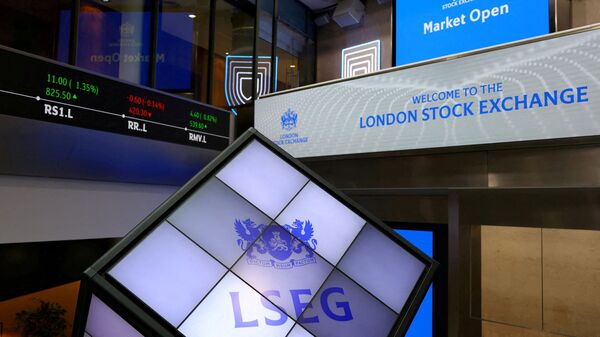A stock market needs to attract stocks. Someone also needs to buy them.

Summary
An overhaul that attracts companies like Shein could help a flagging London Stock Exchange, but the main issue is that U.K. equities are dirt-cheap.If you are shopping around for a country to float your company, looser listing rules may sway your decision. But if nobody is buying the country’s stocks, that may sway you more.
Both factors matter to Chinese fast-fashion giant Shein, which has tapped London as a potential host for a blockbuster initial public offering valued at around £50 billion ($65 billion). New York was its initial target, but concerns about Beijing’s control of the Singapore-based company stood in the way.
The sclerotic London Stock Exchange needs the shot in the arm. Last year, only 19 firms held an IPO in the U.K., according to Dealogic, compared with an annual average of 63 after the 2008 financial crisis and 161 before. It remains home to large multinationals such as AstraZeneca, Shell and HSBC, but has been snubbed by high-profile domestic firms such as chip designer Arm, which last year chose the Nasdaq. Dual-listed companies such as Flutter and TUI have recently given up on London.
British policymakers are scrambling. Last week, the Financial Conduct Authority, the City of London’s watchdog, published an overhaul of its stock-market rules that will come into force on July 29. There will no longer be a “premium" label that grants access to “FTSE UK" indexes, including the FTSE 100. These listings currently have to comply with strict requirements such as calling shareholder votes before big deals.
Also, more companies will be able to issue, alongside vanilla “A-class" shares, “B-class" ones with more voting power—a popular structure among U.S. founder-owners who want to retain control, such as Meta Platforms’s Mark Zuckerberg. The London IPO of takeout-delivery startup Deliveroo in 2021 didn’t qualify for a premium listing because it included dual share classes. The stock has been a terrible investment, though there are other reasons.
To be sure, the changes come at the cost of rules protecting minority shareholders from the whims of technology moguls or powerful foreign investors such as Arm’s Japanese owner SoftBank. But London had little choice: It needed to sacrifice corporate governance to stay competitive with neighboring financial centers.
The real problem is that supply-side reforms can’t fill a demand vacuum.
Ever since the 2016 Brexit referendum, the FTSE 100 has traded at a widening discount to the S&P 500. The gap has grown to unprecedented levels: The U.K. benchmark now trades at less than 12 times earnings, compared with almost 22 for its U.S. equivalent. The U.S. has also raced ahead when comparing specific sectors.
Tellingly, the number of companies traded on the lightly regulated Alternative Investment Market of the LSE, which is designed for small firms, has fallen by 27% since 2016, which is larger than the main market’s 19% decline. Fewer companies have been willing to embrace a lowly valued market, however lax the listing regime. Many others have been taken private by overseas buyers.
Most European bourses are grappling with stingy valuations and thin liquidity, partly because they haven’t benefited from the eye-popping returns delivered by U.S. tech giants. But surveys show that U.K. equities remain one of the most under-owned asset classes among global fund managers. Britain’s own insurance and pension funds only held 4% of domestic listed shares in 2022, down from 46% in 1997, official data show.
Some of this may reverse. BlackRock, the world’s largest asset manager, turned positive on U.K. stocks last week, arguing that the newly elected government will bring back money with its promise to end years of post-Brexit turmoil. Some flows are already coming back.
Other solutions have been floated, such as raising executive salaries and tweaking pension-fund regulations to reintroduce some home bias and risk appetite. Also, Shein’s case shows how geopolitical tensions could revive London’s traditional strength as an international hub, which is how the so-called eurodollar market arose in the 1950s. In a globalized world, a financial center can theoretically thrive despite a weak domestic economy.
In practice, though, it will prove hard to beat the continuing allure of Silicon Valley from afar. For a vibrant IPO ecosystem, nothing beats a location where investors actually want to be.
Write to Jon Sindreu at jon.sindreu@wsj.com



